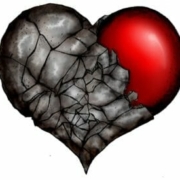To Know God

This week’s Torah portion (Bo) begins like this:
God said to Moses, “Go to Pharaoh. For I have hardened his heart and the hearts of his courtiers, in order that I may display these My signs among them, and that you may recount in the hearing of your children and your children’s children how I made a mockery of the Egyptians and how I displayed My signs among them, in order that you may know that I am God.” (Exodus 10:1)
I like the interpretation that Pharaoh hardened his own heart first, which means God just helped him along — the spiritual equivalent of, “if you keep making that face, you’ll get stuck that way.” I can understand that as a spiritual teaching about how the choices we make about compassion (or lack thereof) shape who we are and who we become.
But this idea that God “made a mockery of the Egyptians” so that we would know God — it’s troubling, to say the least. It seems to treat the Egyptians as meaningless pawns in our journey of spiritual awakening. How can we redeem this verse?
Talking this over with one of my hevruta partners this week, here’s where I arrived. Yes, Torah and the classical commentators show a distressing lack of concern for the Egyptian people who will suffer under Pharaoh’s hardened heart. I can’t magic that away. I can temper it by saying that this is a natural way for a traumatized people to react to abuse of power, and surely the children of Israel are traumatized at this point in their story.
And, I don’t want to operate from a place of trauma. I reject the idea that the suffering of the Egyptians was fine because hey, it got us to a place of knowing God. And, I’m moved by the fact that Torah says that the whole point of this story is for us to know God.
We could even say: the whole point of our being alive is to know God. Maybe the G-word doesn’t work for you. In that case, substitute something that does. The point of our being alive is to know love, or compassion, or justice, or meaning, or truth. The whole reason we’re here is to connect with something greater than ourselves — to “know God.”
Maybe this means: to have deep spiritual encounters, to live in such a way that our hearts are open to the sacred. Maybe it means to know each other more deeply, because each of us is made in the divine image. Maybe it means to know creation more deeply, because when we delve into the natural world, we can (in the words of poet and pilot John Gillespie Magee Jr.) “put out [our] hand and touch the face of God.” Maybe we seek God through Torah study, or prayer, or environmentalism, or pursuing justice. One way or another, our purpose in this life is to connect with the sacred.
And that leads me to the spiritual practice I find in this week’s parsha: approaching everything with that lens. It’s the first lens in my spiritual direction toolkit: “Where is God in this?” If someone in a position of power has hardened their heart and they’re making choices that harm me, how can I harness that experience to open myself to God? How can I choose to center justice and love and hope, even when others are acting unethically — or especially then?
I love this as a spiritual practice. And… it’s really important that it’s a practice I’m choosing, not one that’s imposed from outside. It’s one thing for me to say that I want to respond to a hardened heart by opening to holy connection. It’s another thing to say that anyone else has to respond to injustice in the same way. “Your boss mistreated you — great, what an opportunity for you to know God more deeply!” Um… no. If I were to say that to someone who’d been mistreated, that would be rabbinic malpractice.
Here’s the choice I think we each have: when we encounter injustice — when someone hardens their heart and acts wrongly — will we harden ours in return, or will we choose to soften and to make space for the ineffable? I’m not talking about softening to an abuser. I’m talking about making the choice to keep our hearts open to God even in the face of injustice and suffering.
Torah says the whole drama of the plagues and the Exodus happened so we would know God. This year, that says to me: whatever’s unfolding in our lives — on a personal scale, on a communal scale, on a national scale — can be an opportunity to soften our hearts and to more deeply know God… if we choose to use it that way.
Finding God in whatever’s unfolding won’t erase injustice, but it can give us resilience in the face of injustice. It won’t erase suffering, but it can give us hope in the face of suffering. And maybe that resilience and that hope will give us the capacity to create justice: for ourselves, and for everyone.
This is the d’varling that Rabbi Rachel offered at CBI this morning. (Cross-posted to Velveteen Rabbi.)





